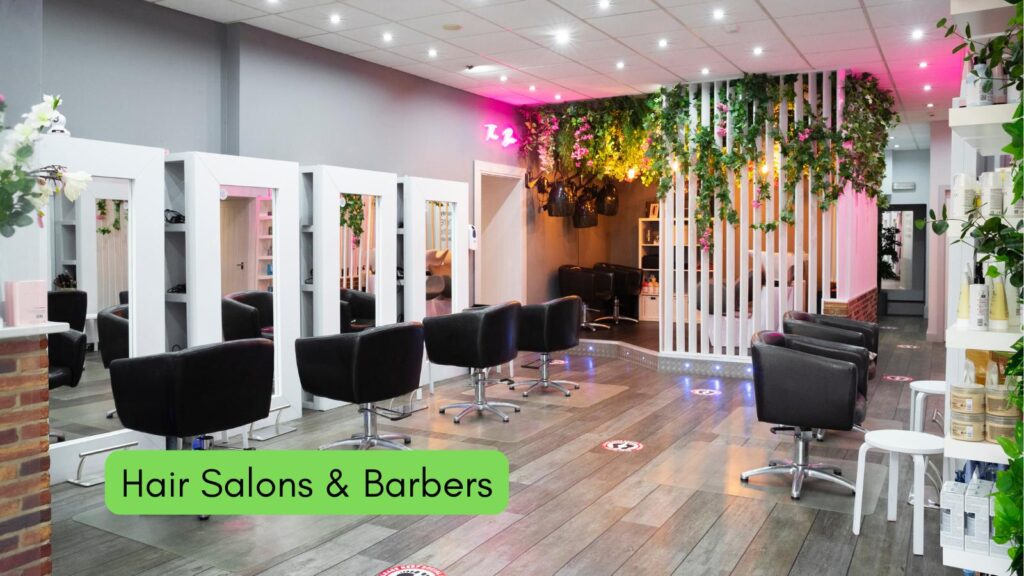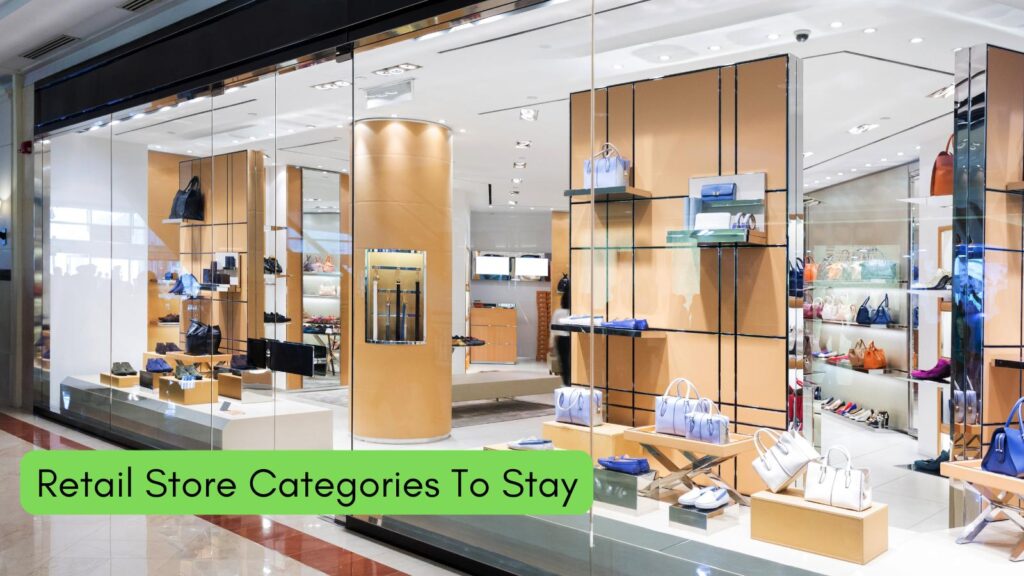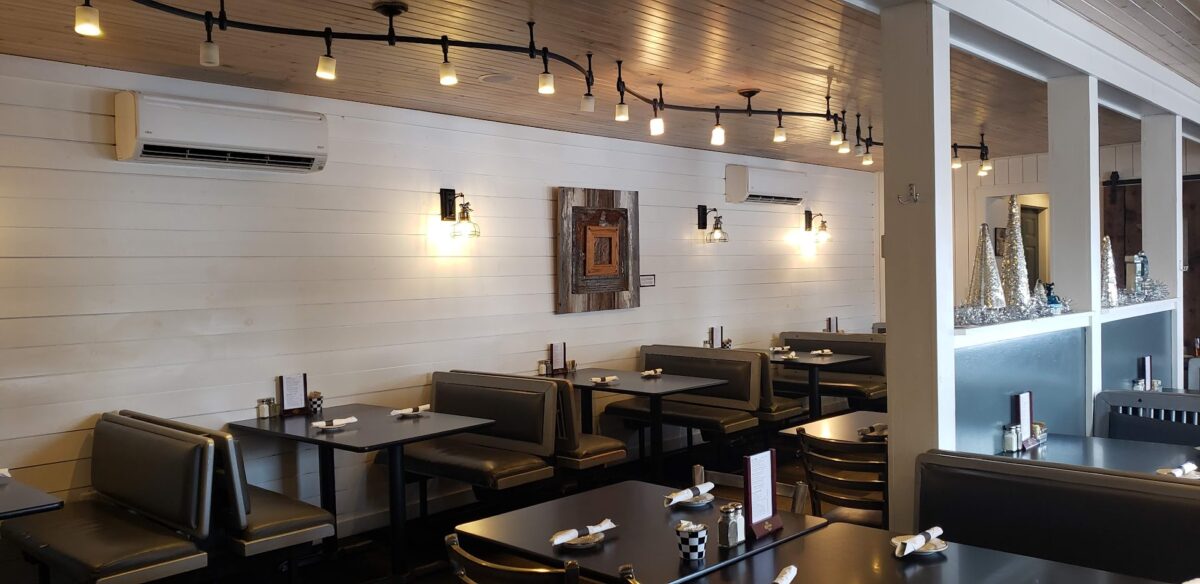The market is shifting, and that always seems to be the case. Still, in a world of increasing digital use and even AI development, many are eschewing standard in-person experiences for online convenience. Of course, some retail store categories, at least according to our understanding, haven’t and are unlikely to lose their relevance anytime soon.
This is true even if online variants exist.
Table of Contents
High Cost of Physical Store
That means if you’re considering going into business, considering the higher rental cost of a physical presence could be worthwhile should you pick an appropriate field. While this list is not exhaustive, it might give you the confidence to pursue that store opportunity. Some are obvious, like fashion outlets, while some are less so.
With that in mind, let’s consider our options for stores types of retail categories:
Toy & Speciality Shops Make Great Retail Store Categories
Physical toy stores offer something online shopping never quite matches – wonder. Children light up exploring aisles of amazing new options, touching and testing potential presents.
Parents appreciate expert advice about age-appropriate choices, so it’s worth it. Specialty toy stores focusing on educational items, classic wooden toys, or collector’s items have also become something of a unique proposition because you can’t gauge the use of these online, or you can buy them in lesser amounts.
These shops often host events like game nights or model-building workshops, which build community. Some brands are timeless, such as lego franchise opportunities, which can help you skip the need to build familiarity with your audience and will always have willing participants and buyers.
Everyone can remember the big toy store department as a kid when going shopping with their parents before Christmas. It was an exciting time to shop.
Salons & Barbers
The personal touch of haircare will be rooted in physical space for quite some time. Even if near-sentient robots do all our work in the future, you can bet most people will want a human to be mindful of those clippers or attentive to those dyes.
Modern barbers also offer traditional services with renewed style, which means they create social hubs as much as grooming spaces in a local community. Moreover, salons are usually more than simply about hair, such as beauty treatments, styling lessons, or product demonstrations, which all matter and are cherished by those who visit.

Wholesalers
Local wholesale stores often serve small businesses and savvy shoppers alike. While they can certainly operate online or by order, there will always be a need for retail stores with large product displays.
Not everything can be shipped in such huge quantities, which adds to the logistics cost and thus nullifies their budgeting advantage.
Moreover, the ability to inspect bulk purchases, compare products directly, and take items home immediately makes these venues necessary. It will continue to do so for quite some time, especially if it serves particular fields, such as those that equip commercial kitchens.
Many wholesalers now combine physical shopping with online ordering systems simultaneously, complementing one another without canceling the other out, offering the best of both worlds.
Types of Retail Businesses, Such As Craft & Art Supply Stores
Creative supplies are often best when tested or checked before bringing them home. Feeling fabric texture, comparing paint colors, or testing pen smoothness happens best in person, and it also contributes to the culture of art, which is important to many people.
It’s not just about selling products because successful craft stores often include workshop spaces, turning retail into community hubs as much as a great barber shop can. Staff expertise also helps beginners choose proper materials, allows students with coursework needs, or may even have printing necessities for larger dimensions they can’t gain at home, giving experienced artists insider knowledge about new products.
Health & Wellness Shops Top Retail Store Categories
Despite online competition, local health stores continue because they can provide esoteric and interesting products from multiple brands at competitive prices. That means knowledgeable staff help navigate supplement choices, natural remedies, and specialty foods.
Some may even be trained nutritionists who can add to a healthcare plan, which is hard to achieve online with any direct frequency.
Conclusion: Retail Store Categories
With this advice, we hope you can see that although it might look like the high street is dying or, in some places, has died, there is still a need and a demand for many different retail store categories in specialty shops worth investing in.
Better yet, smaller shops in more focused communities are often more competitive than before, as it’s usually the high street stores with marked-up prices that have been hit most by the online revolution.
As the world is increasingly online, younger generations are valuing more in-person experiences too. Leveraging that is never a bad idea.
FAQs: Examples of Retail Store Categories That Stay Relevant
Which retail store categories are most resilient to change?
Grocery stores, pharmacies, and discount retailers tend to stay relevant. People need essentials regularly, which aren’t easily replaced by online shopping.
Why won’t grocery stores lose appeal?
Fresh produce, perishable items, and personal choice make grocery stores hard to replace entirely with online alternatives.
Are retail store categories of discount and dollar stores still popular?
Yes, especially in economic uncertainty. Shoppers look for affordable options, keeping these stores consistently valuable.
How do convenience stores remain competitive?
Quick access to snacks, beverages, and other necessities keeps convenience stores a practical choice for many retail store categories.
Will home improvement stores stay important?
Yes. DIY projects and urgent repair needs mean customers often prefer to buy in person rather than wait for deliveries.
Are retail store categories like pet supply stores in demand?
As pet ownership rises, pet food, toys, and grooming products remain steady sellers that people often need quickly from pet stores.
Can bookstores sustain their appeal?
Niche bookstores with events, unique selections, or community focus continue to appeal, though general bookstores face challenges.
Are retail store categories in fashion retail still relevant?
Certain segments like fast fashion and specialized apparel stay popular, but competition from online stores is strong.
Why do specialty food stores endure?
These stores offer unique, high-quality products like organic or international foods, often unavailable at chain supermarkets.
Are pharmacies under threat from online options?
Not significantly. Immediate prescription needs and over-the-counter purchases keep them crucial for many shoppers.
What about furniture and home décor stores?
They stay relevant, as customers often want to see and test furniture like sofas or mattresses before buying.
Are hobby and craft stores still doing well?
Yes. Many customers want personalized advice, inspiration, and hands-on shopping experiences from these hobby and craft stores.
Do toy stores still attract customers?
Specialized toy stores offering unique or educational items remain appealing, though big-box competitors dominate mainstream markets.
Why do beauty supply stores retain customers?
Shoppers appreciate physical stores for product sampling, recommendations, and immediate purchases of makeup or skincare products.
Will small local businesses survive?
Many thrive by focusing on personalized service, unique offerings, and community connections not found in large retailers.




